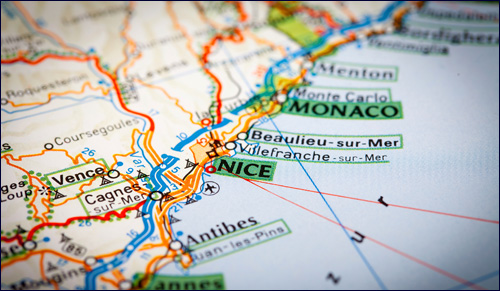 Iran’s Attack on Israel
Iran’s Attack on Israel


5 min read
I worked in the kitchen at a Passover hotel in France. I survived and still love Judaism.
Try this: go to the kitchen and chop the salad, be asked to join prayers every time a tenth man is needed, go back to the kitchen and resume chopping, have a young mother with a screaming toddler in her arms come in and beg for food, explain to her that food is what you are trying to prepare if only they would let you, be called to join prayers again, go back to the kitchen to find a lady who suggests you should chop the salad thinner and quicker, have the previous young mother come back and insist you give her anything that’s ready or her toddler won’t stop crying, open the fridge to find some leftovers to feed the toddler, be called to prayers again. And then be asked whether lunch is ready and if not, why not.
Eight days without garlic? Without oxygen maybe, but without garlic?
Repeat twice daily for eight days. Happy Pesach!
This past Pesach I had a unique experience – I joined an intensively Orthodox vacation group in Southern France and I worked in the kitchen. I don’t do that professionally, but volunteer to cook for Shabbat in my shul. My wife, who is a professional, has been my teacher. So apparently, my kitchen skills were up to the task. What I lacked was extreme survival training.
I am a Sephardic Jew, so I am allowed to eat kitnyot (rice and beans). I am also used to wetting the matza, so I can make matza lasagna, matza balls soup and similar delights. I knew when I accepted this job that I was going to miss out on these, because this group follows the Ashkenazi rules. Little could I expect that I would have been required to peel all vegetables (including tomatoes and zucchinis), and that many vegetables are considered not permissible. Some others are accepted by some, but rejected by others, so I was required to declare whether a food contained potato flour, or walnuts for example, and always offer an alternative.
I want to be very clear: I deeply respect different minhagim (traditions), and I admire those who stick to higher standards. But please try and imagine my cultural shock.
Me, a Sephardic Jew with a passion for cooking, had to go eight days without garlic? Without oxygen maybe, but without garlic? And no spices of any kind but onions!
I give myself credit, because I still managed to cook potatoes (our only source of carbs besides matza) in four different ways: baked plain, baked with onions, boiled plain, and boiled with onions. Yum!
Oh and of course kugel, which basically consisted of grated potatoes and, guess what, onions!
These people were very generous and kept complimenting my cooking, insisting I was doing a great job, despite all the restrictions. They made me feel as welcome and at home as possible for someone who belongs to a very different stream of Judaism, for which I am very grateful. Nonetheless, sometimes, my patience was at risk.
Like when I was hurrying to cook dinner and a nice lady walked into the kitchen and very kindly asked: “My family and I are leaving right away, please is there anything ready for four adults and a child? Anything at all.” I couldn’t get upset, because she so nicely insisted any leftover would do, and she apologized for the bother. But when my boss came and asked why I was behind, well… I’ll let you imagine…
Or when I was cooking a stew and all passers-by thought it fine to remove the top and deeply sniff the contents. Until one of them decided it was getting too dry and added half a bottle of water before I could react.
Then of course my boss came and asked me why the stew was so thin…
And what about that time when people were very hungry and kept asking for dinner. So I hurried it up, with my boss also helping along. And when it was ready… they were all gone!
Then of course my boss told me it’s not wise to change the time of a meal. And when dinner was eventually served, he asked me why the meat was cold…
Or I could tell you about the gentleman, who, for some reason I still can’t explain, would always ask for food while the others had already recited the birkat hamazon (blessing after the meal)? He was such a nice and kind person, that it was impossible for me to answer something nasty such as “What exactly are you doing when everyone else is eating, playing hide and seek?” Of course, I would go and warm up his plate.
So, I learned quite a few things this past Pesach. Now I realize better how difficult it can be to run a catering event, never mind a restaurant, but even to cook for a big family, which makes me more grateful to my wife and to everybody who has ever invited us for Shabbat or other occasions.
I also learned that it does not only matter what spices you can use, and what foods you can eat. What is much more important is what you make of a meal and who you spend it with. These people, despite everything, taught me how to use every meal to grow closer to each other and to learn about Torah and mitzvot.
If they want me, next year I’m ready to give up garlic and eat potatoes for eight days in a row once again, as long as I can share the friendship and warm atmosphere that I experienced this year.
Or should I say: Next year in Jerusalem?
